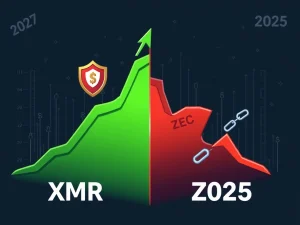Urgent Relief: Gibraltar Court Reverses Freeze on 542M PLAY Tokens Amid Crypto Legal Battle

In a dramatic turn of events, a Gibraltar court has unfrozen a massive 542 million PLAY tokens, nearly two-thirds of its circulating supply, which were previously frozen due to a heated legal dispute. This decision brings a significant shift in the ongoing battle between US-based Ready Games and its Gibraltar-based subsidiary, Ready Maker. Let’s dive into the details of this intriguing crypto saga and understand what it means for the future of PLAY tokens and the parties involved.
Why Did the Gibraltar Court Unfreeze the PLAY Tokens?
The Gibraltar Supreme Court, under Judge John Restano, made a decisive move on April 17th, reversing its earlier February decision to freeze the PLAY tokens. The court cited insufficient evidence to justify continuing the freeze, emphasizing the potential harm it could inflict on the token’s value. Judge Restano pointed out that while various factors might contribute to the token’s price drop, the ongoing legal proceedings themselves seemed to be a significant factor. This suggests the court was concerned that the freeze itself was negatively impacting the PLAY tokens and the broader PLAY Network ecosystem.
What is the Crypto Legal Dispute About?
At the heart of this case is a complex crypto legal dispute between Ready Games, a US-based company, and Ready Maker (Gibraltar) Limited, its subsidiary operating as PLAY Network. David Bennahum, founder of Ready Games, alleges that Christina Macedon, CEO of the Gibraltar subsidiary, improperly took control of the firm and its PLAY tokens. These tokens are integral to the PLAY Network, serving as rewards within its Web3 game-creation platform. Ready Games initially secured a token freeze in February, leading to the 542 million PLAY tokens being handed over to a court-appointed custodian. However, this victory proved short-lived with the recent court reversal.
The Impact of the Token Freeze and Unfreeze on PLAY Tokens
The sheer volume of PLAY tokens frozen – 542 million – represents a substantial portion of the circulating supply and is valued at approximately $2.6 million. The court acknowledged the detrimental effect of the freeze, stating it could be contributing to the token’s plummeting price. CoinGecko data reveals a staggering 97% price decrease since the token’s launch in December. The price has dwindled to mere fractions of a cent over the past three months. The unfreezing aims to mitigate further damage and potentially allow for price recovery, although the market’s reaction remains to be seen.
Here’s a quick look at the timeline of events:
- December Launch: PLAY token is launched.
- February Freeze: Gibraltar court orders a freeze of 542 million PLAY tokens at Ready Games’ request.
- April Unfreeze: Gibraltar court reverses the freeze, citing insufficient evidence and potential harm to token value.
Ready Games’ Reaction and Next Steps
Despite the court’s decision, Ready Games is not backing down. David Bennahum stated they have filed an appeal and are urgently requesting the Gibraltar Court of Appeal to either maintain the original injunction or issue a new one to reimpose the token freeze while the appeal is processed. Bennahum reiterated his claim that Ready Maker Gibraltar was established solely as a “token launch vehicle” using Ready Games’ intellectual property and funding. He maintains that Christina Macedon and associated parties have “wrongfully seized control” of this entity and its assets. This sets the stage for a prolonged and potentially complex legal battle.
What Did the Court Say About Ready Games’ Evidence?
Judge Restano was notably critical of the evidence presented by Ready Games to justify the initial token freeze. He described it as “far from impressive” and raising “more questions than it answers.” Furthermore, he highlighted a “significant omission” by Ready Games: their failure to disclose they were in administrative dissolution in Delaware when they initially filed for the freeze. This criticism suggests the court found Ready Games’ legal maneuvering questionable, contributing to the decision to lift the freeze.
Christina Macedon’s Statement and the Future of PLAY Network
Christina Macedon welcomed the court’s judgment, stating it “restores clarity for our community and partners” after “months of false and misleading statements.” Regulatory filings reportedly indicate Macedon as the sole controller and ultimate beneficial owner of Ready Maker Gibraltar, further complicating Ready Games’ claims. The unfreezing of the PLAY tokens is undoubtedly a win for Macedon and PLAY Network, potentially paving the way for renewed focus on platform development and community engagement. However, with Ready Games’ appeal underway, the future remains uncertain.
Implications for the Crypto Gaming and Web3 Space
This case highlights the intricate legal challenges that can arise in the rapidly evolving crypto and Web3 gaming space. Disputes over token ownership, corporate control, and intellectual property are becoming increasingly common. The Gibraltar court’s decision underscores the importance of robust evidence and full disclosure in legal proceedings within the crypto industry. The outcome of Ready Games’ appeal will be closely watched, as it could set precedents for similar crypto legal disputes in the future.
In Conclusion: A Temporary Reprieve or a Decisive Victory?
The Gibraltar court’s decision to unfreeze 542 million PLAY tokens offers a temporary reprieve for PLAY Network and Christina Macedon. It provides much-needed clarity and potentially stabilizes the value of PLAY tokens, at least for now. However, with Ready Games determined to appeal and reinstate the freeze, this legal battle is far from over. The crypto community will be keenly observing the next chapter in this saga, as it unfolds in the Gibraltar Court of Appeal. Will Ready Games succeed in reimposing the freeze, or will PLAY Network finally gain definitive control of its tokens? Only time will tell.










